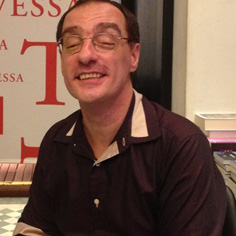Permanent Professor
Associate Professor at Fluminense Federal University, working at the Department of Social Communication, at the Postgraduate Program in Media and Everyday Life (PPGMC) and at the Postgraduate Program in Social Policy Studies (PPGPS). Coordinator of UFF’s Social Communication undergraduate course (2016-2020). Postdoctoral researcher at Madrid’s Carlos III University (2013), has earned a Ph.D. in Social Communication (2005) and a Master’s Degree in Social Communication (1995) from Universidade Metodista de São Paulo. He holds a Bachelor’s Degree in Social Communication (Advertising) from Fluminense Federal University (1992). Adilson is the coordinator of EMERGE – Center for Research and Production in Communication and Emergence and a researcher at COMUNI, a research group based at Universidade Metodista de São Paulo. He is part of the PPGMC’s Applied Research Lab – LaPA. He has been awarded a FAPERJ Young Scientist Grant (Edital Jovem Cientista do Nosso Estado, from 2013 to 2016). He is a member of ULEPICC Brazil – the Brazilian Chapter of União Latina da Economia Política da Informação, da Comunicação e da Cultura. He worked as the General Secretary of this association between 2010 and 2014, and he was the President of the same association from 2014 to February 2016. From 2012 to 2016, he was the Vice-Chair of the Community Communication Section of IAMCR – International Association of Media and Communication Research. He is also the author of several books and articles on the following topics: communication policies, democratization of communication, the social appropriation of ICTs, community communication and the digitalization of communication.
Research Projects
Community Broadcasting Policies: the role of policy makers, enforcers and researchers for the strengthening of this sector
Lattes: http://lattes.cnpq.br/1787526384833274
e-mail: acabralrj@gmail.com








